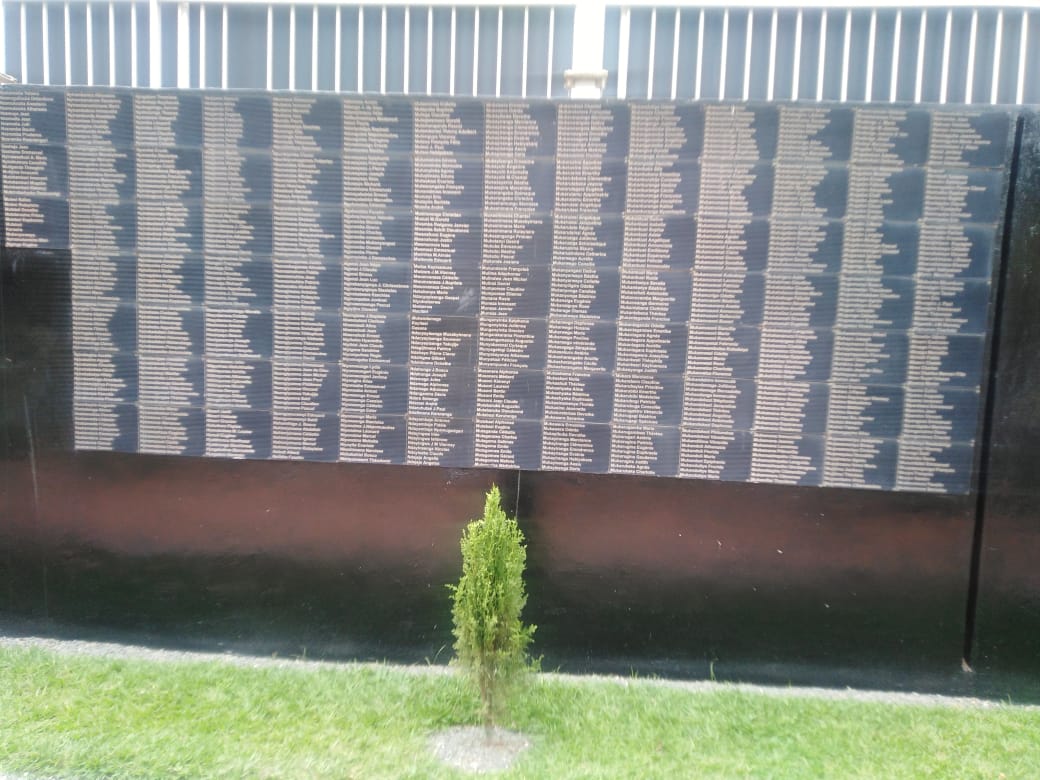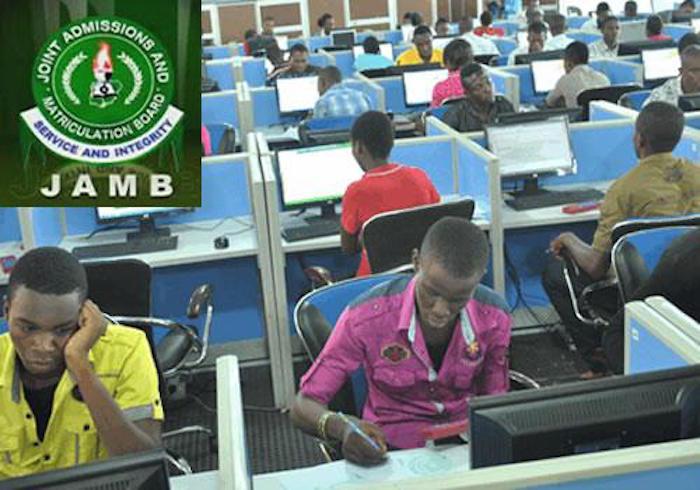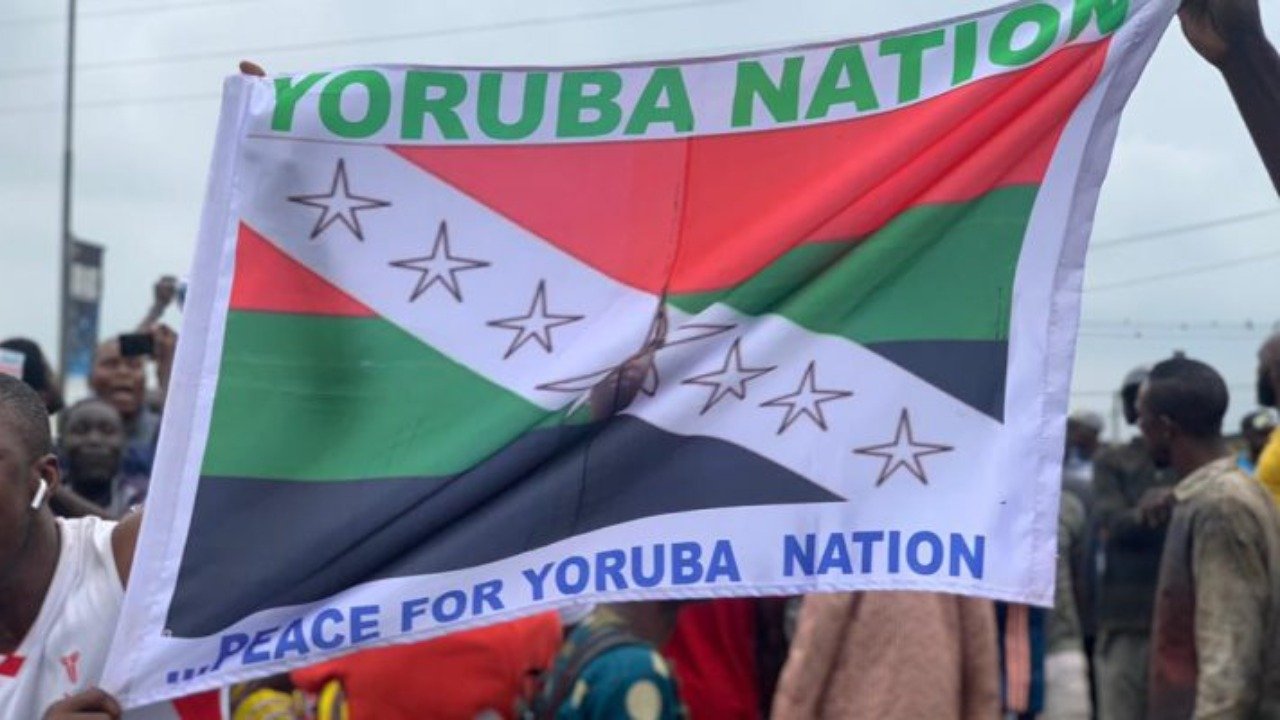By Dolapo Aina
On Wednesday, May 17, 2023, I visited Kigali Genocide Memorial with a family member who came to Kigali. During this particular trip in May 2023, I saw a young couple of Northern extraction and a lot of Nigerian women of Eastern extraction, who were in several groups (more like a whole family: nuclear and extended family members). I also saw Nigerians in Diaspora. I had visited the Memorial located in Gisozi just some weeks earlier in March 2023 and I recollected I had composed an epistle of an article. Do read the piece.
I try to forget but it is useless. I can’t forget even a small part of it – words of a Genocide survivor found at the Kigali Genocide Memorial
Dear Nigerians. This piece is a long article, as there was no other way to get the message across. What you are about to read, dictates you need to have the patience of a Tibetan Monk to read (not peruse) through the epistle-like article.
Office on Genocide Prevention and The Responsibility to Protect
United Nations’ Office on Genocide Prevention and the Responsibility to Protect has on its’ website a plethora of links which are easy to read and understand.
Prevention
To prevent atrocity crimes, it is critically important to understand the root causes of these crimes. Atrocities crimes, particularly genocide and crimes against humanity, are not spontaneous acts. Instead, they develop as a process over time, as a result of which it is possible to identify warning signs that they may occur. The Office on Genocide Prevention and the Responsibility to Protect has developed a Framework of Analysis to identify some of the main risk factors for atrocity crimes. Preventing atrocity crimes means being aware of these risks and taking action to address and reduce them, or ideally, eradicate them.
Preventing genocide, war crimes, ethnic cleansing and crimes against humanity is an ongoing process that requires sustained effort over time to build the resilience of societies to atrocity crimes by ensuring that the rule of law is respected and that all human rights are protected, without discrimination; by establishing legitimate and accountable national institutions; by eliminating corruption; by managing diversity constructively; and by supporting a strong and diverse civil society and a pluralistic media.
According to international law, the primary obligation to prevent atrocious crimes lies with individual States. The Convention on the Prevention and Punishment of the Crime of Genocide, the 1949 Geneva Conventions and overall international human rights law treaties contain provisions that oblige Member States to prevent those crimes or violations, including by ensuring the respect for the norms in them contained.
In the 2005 World Summit, Member States adopted the principle of the Responsibility to Protect, which reaffirms the primary responsibility of the State to protect its population from atrocity crimes, as well as their incitement. However, that principle also underlines the responsibility of the international community to prevent atrocity crimes by helping States to build capacity to protect their populations and assisting States under stress “before crises and conflicts break out”.
Preventing atrocity crimes should be a priority for everyone. First and foremost, prevention is the only way to avoid the loss of human life, trauma and physical injury. However, there are also other significant reasons to focus on prevention. The United Nations Security Council has stated in several of its resolutions that serious and gross breaches of international human rights and humanitarian law constitute threats to international peace and security. Therefore, prevention not only contributes to national peace and stability, it also serves the broader regional and international peace and stability agenda. Prevention of atrocity crimes is also much less costly than intervening to halt these crimes, or dealing with their aftermath. Finally, by taking measures to prevent atrocity crimes and fulfilling their primary responsibility to protect, States reinforce their sovereignty and reduce the need for more intrusive forms of response from other States or international actors.
Response
Although preventing atrocity crimes is far preferable to responding when the crimes are ongoing or after they have been committed, there are times when prevention has failed. The brutal legacy of the twentieth century, marred as it was by the Holocaust, the killing fields of Cambodia, the genocide Against The Tutsi in Rwanda and in Srebrenica and other events, underlined the profound failure of individual States to live up to their responsibilities and obligations under international law, as well as the collective inadequacies of international institutions. These tragedies pressed the need for a collective response that would protect populations by either stopping the escalation of on-going atrocities, or accelerating or prompting their termination.
Though the responsibility to protect populations against genocide, war crimes, ethnic cleansing and crimes against humanity lies primarily with individual States, the principle also underlines the responsibility of the international community to take collective action, in a “timely and decisive manner”, to protect populations from those crimes when States “manifestly fail” in their responsibilities. In these cases, responses to atrocity crimes can take the form of peaceful means under Chapters VI ad VIII of the United Nations Charter, or take the form of coercive means, including those foreseen in Chapter VII of the Charter.
Accountability
The links between justice and peace are strong. Properly pursued, accountability for atrocity crimes can serve not only as a strong deterrent, it is also key to successful reconciliation processes and the consolidation of peace in post-conflict societies. Impunity destroys the social fabric of societies and perpetuates mistrust among communities or towards the State, consequently undermining a lasting peace. The confidence that justice has been served and that those responsible for serious crimes are being held accountable helps prevent feelings of frustration, bitterness and the possible desire for revenge of victims, their families and those who share ethnic, religious, racial or national origins, which could lead to further violence and atrocities. In this way, justice and peace promote and sustain one another.
Just as States have the primary responsibility to protect their populations from atrocity crimes, they also have the obligation under international conventional and customary law to see that those responsible for acts of genocide, crimes against humanity or war crimes are made accountable and that victims have a right to an effective remedy. Alongside other transitional justice mechanisms, prosecutions give recognition to the suffering of the victims and their families and contribute to the restoration of some of the dignity or integrity that they lost or was severely damaged.
Knowing what happened in the past, who was responsible and why it happened, paves the way to preventing a recurrence of violence, to putting in place early warning mechanisms and in general, to developing strategies for prevention. In this regard, the work developed in the pursuit of justice by national jurisdiction as well as international jurisdictions such as the International Criminal Court, the ad hoc international tribunals and the hybrid courts, has been instrumental in creating a culture of accountability throughout the world and in educating societies and influencing future generations on the importance of the respect for human rights norms and principles, as well as on the lessons we can learn from past crime.
Mandate of United Nations’ Office on Genocide Prevention and the Responsibility to Protect
Just in case, you don’t understand what the mandate of United Nations’ Office on Genocide Prevention and the Responsibility to Protect is all about, you need to know these important facts.
The Office on Genocide Prevention and the Responsibility to Protect supports two Special Advisers who report directly to the United Nations Secretary-General:
The Special Adviser on the Prevention of Genocide, who acts as a catalyst to raise awareness of the causes and dynamics of genocide, to alert relevant actors where there is a risk of genocide, and to advocate and mobilize for appropriate action.
The Special Adviser on the Responsibility to Protect, who leads the conceptual, political, institutional and operational development of the Responsibility to Protect. The mandates of the two Special Advisers are distinct but complementary. In order to maximise efficiency and resources, the Secretary-General decided to institutionalize the collaboration between the Special Advisers through the establishment of a joint office. As far as possible, the two Advisers share a common methodology for early warning, assessment, convening, learning, and advocacy, as well as a common office and staff based in New York.
Saturday’s Sad Sights and Sounds
Though, I am not labouring under a misapprehension, I am still trying to process what I watched, like every other Nigerian, online on Saturday, 18th of March 2023 during the gubernatorial elections in Lagos State, the commercial nerve centre of Nigeria and by extension; West Africa. It is safe to also state that Africa was watching with keen interest. I can state so, because of the questions I got from Rwandan and African friends and acquittances.
Acquitting yourself with the sordid macabre dance that occurred on Saturday, 18th of March 2023 would be practically impossible. It was not a movie set with actors and extras shooting several takes. The hate speech moments and attacks have two ingredients: targeted and coordinated. Unnerving precedents if you have read these books on Rwanda by Linda Melvern (a renowned British investigative journalist) which are: The Ultimate Crime: Who Betrayed the UN and Why?; A People Betrayed: The Role of the West in Rwanda’s Genocide (2000); Conspiracy to Murder: The Rwandan Genocide (2004); Intent to Deceive: Denying the Genocide of the Tutsi (2020). And also, Lieutenant-General Romeo Antonius Dallaire’s book titled: Hands with the devil. General Dallaire was the head of the United Nations blue-helmet soldiers here in Rwanda in 1994. General Dallaire served as force commander of UNAMIR, the ill-fated United Nations peacekeeping force for Rwanda between 1993 and 1994.
In 1994, something evil happened in Rwanda. The Genocide Against The Tutsi which took place within 100 days. I have written about this several times from 2014 when I first visited Rwanda for the first time. That first visit was in April 2014. What you should realise is that from April 7th and for the next 100 days, there is a commemoration of the Genocide Against The Tutsi called Kwibuka (Remember, Unite, Renew) and during this period, you cannot miss the stories and tales told by people, media, institutions and parastatals. The more you grasp the enormity of what happened in Rwanda, the more you realise that Genocides have the templates. Rwanda, Namibia, Armenia, Cambodia and Israel have experienced Genocides and when you visit Genocide Memorials in these countries, you would understand that such heinous atrocities don’t just happen. According to all the Holocaust Memorial websites in the world, there are ten stages of a Genocide namely: classification, symbolisation, discrimination, dehumanisation, organisation, polarisation, preparation, persecution, extermination, denial. Observing events weeks before the Presidential elections, one could see some indicators but I brushed them off. Nigeria cannot go that path; I convinced myself. But now, I am not so sure. I am not sure.
Kigali Genocide Memorial: Another Visit
To be sure my analysis was still accurate. To be sure it was not a case of analysis paralysis. To be sure my years of visiting the Genocide Memorial in Kigali more than fifty times since 2014. To be sure my attendance at the Embassy of Israel in Rwanda’s Commemoration of Holocaust and Genocide every January 27 of every year were not in futility. To be sure my attendant interactions with two Holocaust survivors; Mr David Frankel in 2020 and Mr. Emil A. Fish in 2023 whose stories I touched on in my Guardian Nigeria pieces titled; International Holocaust Memorial Day: Tales from the Land of a Thousand Hills (January 2020) and From Kigali Genocide Memorial: Notes on International Day of Commemoration in Memory of Holocaust victims (January 2023) were no fluke. To sure what I observed online from Lagos, Nigeria was what I thought it was, I decided to visit Kigali Genocide Memorial.
On Wednesday 22nd of March 2023, I arrived at the Kigali Genocide Memorial at 13.10pm (some sections were having a facelift as painters were busy; all in preparation for the 29th commemoration of The Genocide Against The Tutsi from April 7th). I arrived at the Memorial and at 13.17pm, I walked into the entrance of the Memorial. I walked into the first room where you watch the visuals of testimonies of survivors and a survivor’s sentence jumped at me; ‘We still don’t know what happened in 1994. We got along just fine but they slaughtered our children.’
Passing through sections numbered 17: Divided societies, 18: Path to a final solution; 19: Propaganda (ranging from all forms of media to cartoons. It was evident that persecution was an early indication of what was to come) The section numbered 20 had machetes, clubs, guns and several blunt tools: A caption read 300,000 orphans and over 85,000 children who were heads of their households with younger siblings and relatives. Another read 1000s of widows, many had been the victims of rape and social abuse or had seen their own children murdered.
In another section, a caption read, ‘The genocidaires had been more successful in their evil aims than anyone would have dared to believe.’ Reading some stories, I realised and discovered yet again that the popular downtown Kigali, Kacyiru and Gisozi (the area where The Genocide Memorial is situated) also have tales with the history of Rwanda. In another room cum section, I saw skulls, rosary, a smoking pipe, wallet, left pair shoe for a baby girl. Other rooms had stories of The Genocides Against The Jews, The Genocide Against The Herero and Nama. The children’s room as always would leave you sober.
As I took pictures in the premises after the hour tour, I heard someone speak and the accent sounded Nigerian. I spoke in Nigerian pidgin English and he responded in pidgin English. Then, he asked; ‘Where are from in Nigeria?’. I replied; ‘With what happened in Lagos on Saturday, I would prefer to say, I am a Nigerian.’
Succinct Summary
What took place in Lagos State cannot be wished away or glossed over. The varied forms of attacks from physical, psychological and all forms of media; perpetrated by politicians, mouth pieces, aides, paid media personalities, custodians of age-long traditions who have finally demystified traditional myths and beliefs; handy men and their thugs and regular citizens who took part in the macabre dance should realise one thing. Ignorance of hate speech doesn’t negate it. And as long as you didn’t think it thoroughly before your comments were posted or recorded; the appropriate global institutes, do track hate speech instigators. The snide, chide, remark, cartoon, post made today, would be what might indict you when the time comes. A solution bordering on a must have conversation is paramount and peace cannot reign if justice is not meted out. Anything other than justice is just being unrealistic if not phantasmagorical. Who leads this conversation? Who heads this conversation? Surely, not anyone who has his or her hand (covertly or overtly) involved in the evil that befell Lagos State on March 18, 2023.
Residing in Rwanda, knowing, reading and learning from Genocide survivors (Rwandans and Jews), it would be almost impossible for a Nigerian who lives in Rwanda, not to understand the importance of what occurred in Lagos. The indicators all point to something sinister and downright evil and well-orchestrated. A day later, on Sunday, 19th, a Nigerian living in Kigali, stated whilst we spoke that, ‘Lagos wrote a love letter to genocide.’ I would rephrase the sentence thus, ‘Nigeria via Lagos State wrote an enticing and seductive love letter to woo genocide,’ C’est fini. My conscience is clear.
Dolapo Aina writes from Kigali, Rwanda

 News6 years ago
News6 years ago
 Featured6 years ago
Featured6 years ago
 Boss Picks6 years ago
Boss Picks6 years ago
 Headline6 years ago
Headline6 years ago
 Headline6 years ago
Headline6 years ago
 Headline5 years ago
Headline5 years ago
 Headline6 years ago
Headline6 years ago
 Headline6 years ago
Headline6 years ago













